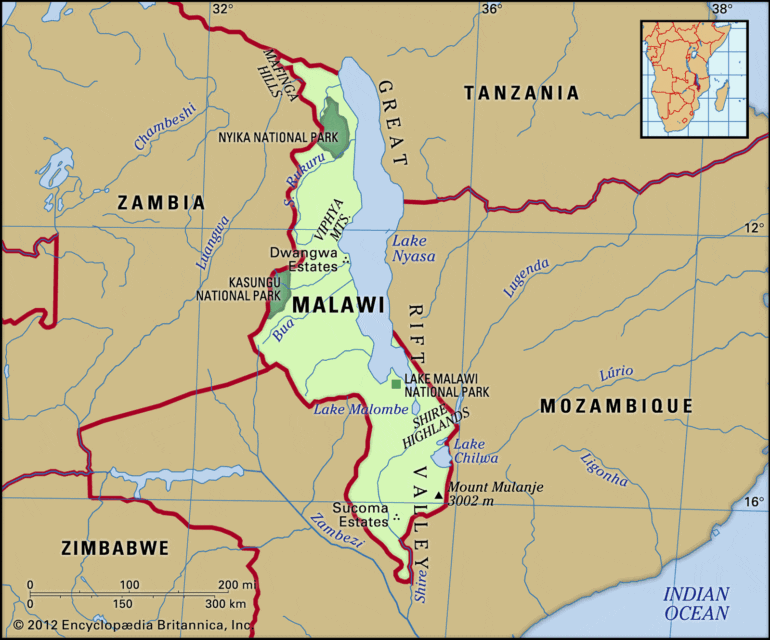TL;DR:
- Malawi inaugurates its first-ever Centre for Artificial Intelligence and STEAM.
- Supported by leading US universities, the center aims to drive technological innovation in Malawi.
- The project is led by Zipangani Vokhiwa, a Fulbright scholar and Mercer University professor.
- The center offers education and services in AI, machine learning, data science, and more.
- Concerns about job displacement due to AI are addressed with a focus on AI’s potential for employment creation.
- Malawi’s Minister of Education emphasizes the need for responsible AI usage and policy development.
- Regional efforts in Southern Africa are underway to establish AI ethics guidelines.
- The Malawi University of Science and Technology aligns its activities with development agendas.
Main AI News:
In a groundbreaking development, Malawi has inaugurated its inaugural Centre for Artificial Intelligence and STEAM (Science, Technology, Engineering, Arts, and Mathematics) at the Malawi University of Science and Technology. This remarkable milestone is the result of collaboration with various prestigious US-based universities, aimed at addressing Malawi’s technology and innovation requirements.
The visionary behind this initiative, Zipangani Vokhiwa, a distinguished science professor at Mercer University in the United States and a Fulbright scholar, envisions the center as a catalyst for advancing the study and application of artificial intelligence (AI) and STEAM disciplines to drive Malawi’s socioeconomic growth.
“Economic development today is intricately intertwined with modern scientific knowledge,” Vokhiwa asserts, emphasizing the center’s role in aligning with Malawi’s Vision 2063. He stresses that for the nation to remain competitive on the global stage, it must not be left behind in the realm of scientific progress.
CAIST, as the center is abbreviated, is poised to provide a comprehensive array of educational, technical, policy, and strategic offerings in emerging technologies, particularly AI. Its curriculum will encompass essential domains such as machine learning, deep learning, data science, data analytics, and the Internet of Things, all grounded in a humanistic STEAM educational framework.
This endeavor receives robust support from a consortium of distinguished US universities, including Baylor College of Medicine, Texas Tech University, Morehouse College, Colorado University, Georgia Southern University, Clemson University, New York University, and Mercer University.
While the rise of AI has sparked concerns about job displacement worldwide, Vokhiwa asserts that the debate on its advantages and disadvantages is far from settled. He highlights that AI, in fact, has the potential to create employment opportunities since it requires skilled individuals to operate AI systems effectively.
Malawi’s Minister of Education, Madalitso Kambauwa Wirima, officially inaugurated the AI center at the Malawi University of Science and Technology. She acknowledges the transformative potential of AI but underscores the importance of addressing its potential downsides. To this end, she looks to CAIST for expertise in developing policy and regulatory frameworks governing responsible AI usage.
Kambauwa Wirima acknowledges that AI is already ingrained in society and emphasizes the need for proactive engagement. She reveals that the Southern African Development Community is already working on regional guidelines for AI ethics, indicating that Malawi cannot afford to remain passive on this critical front.
Address Malata, the vice chancellor of the Malawi University of Science and Technology, reaffirms the institution’s commitment to aligning its activities with various development agendas, including Malawi 2063, Africa Agenda 2063, and the Sustainable Development Goals. This alignment ensures that the center’s endeavors benefit all, furthering the nation’s progress on multiple fronts.
Conclusion:
The establishment of Malawi’s AI hub with support from prominent US universities signifies a significant step towards fostering innovation and technological growth in the region. It not only addresses the need for AI education and services but also underscores the importance of responsible AI usage and policy development. As AI continues to reshape industries worldwide, this initiative positions Malawi to actively participate in the evolving global market for AI-driven technologies and solutions.

